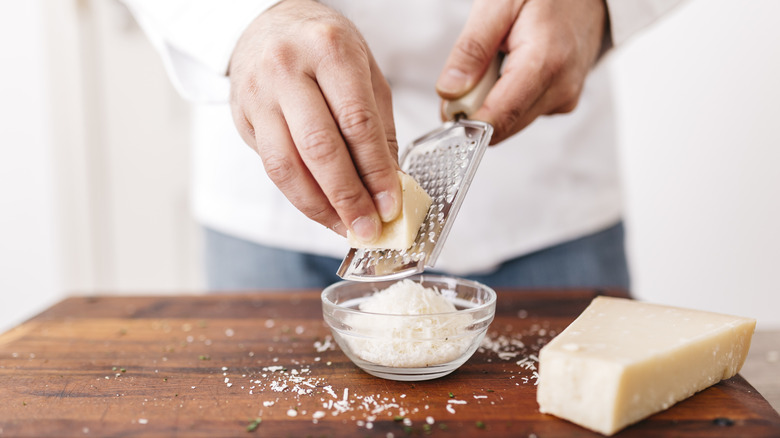
The notion that eggs aren’t a healthy food choice is among the numerous health myths that should be debunked. In truth, eggs are rich in nutrients, including about 6 grams of protein in both the white and yolk. However, eggs are not the sole food source rich in protein. Aged cheeses can also provide a significant protein boost, with parmesan leading the pack.
It turns out that parmesan cheese ranks among the healthiest cheeses available. One ounce of parmesan cheese offers 10 grams of protein, surpassing the protein content of an egg by more than one-and-a-half times. Additionally, the protein in parmesan cheese is complete, containing all the essential amino acids your body needs.
If you’re interested in maximizing protein intake from nutrient-rich foods, parmesan cheese might be a practical and delicious choice. Besides a substantial protein dose, you might also enjoy other unexpected benefits.
Parmesan: A hard cheese that’s soft on your gut

For example, you might find that parmesan cheese is easier to digest if you’re sensitive to lactose in dairy products. Due to its longer fermentation process compared to softer cheeses, parmesan cheese loses much of its lactose content. While not completely lactose-free, its low lactose level makes it tolerable for many who typically avoid lactose-containing products.
Another advantage of parmesan cheese is its high calcium content. It provides about 26% of the recommended daily value of calcium, a vital nutrient, which eggs cannot match.
The calcium and protein in parmesan cheese are efficiently absorbed by your body. As registered dietitian Alexis Suban explains (via Cleveland Clinic), “Your body can absorb most of that calcium and break down most of that protein really easily,” noting that other foods “might have certain ingredients and nutrients you need, but your body struggles to break them down in the way you need them.”
The pros (and cons) of parmesan cheese

Parmesan cheese is also loaded with vitamins. According to a 2017 review in Food Technology and Biotechnology, consuming about 3.5 ounces (approximately 100 grams) of parmesan cheese can help you meet your daily B12 and biotin requirements. This is particularly important for those seeking to obtain their vitamins through food rather than supplements.
While parmesan cheese has numerous benefits, it’s not without its drawbacks. Alongside the protein, calcium, low lactose, and essential vitamins, comes a high sodium content. At over 1,800 milligrams of sodium per 100 grams, parmesan is one of the saltiest cheeses available.
High sodium intake has been linked to an increased risk of cardiovascular disease. A 2020 review in Nutrients highlighted that high-sodium diets could elevate the risk of heart disease by 19%. Therefore, if you aim to manage your blood pressure or reduce the risk of stroke or heart attack, it’s important to moderate your parmesan cheese consumption or complement it with low-sodium food options.
“`




